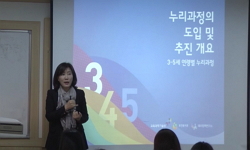오늘날 사회적 분화 및 전문화는 정보기술의 성장과 정보의 증가 속에서 더욱 심화하고 있는 한편, 사회적 관계의 통합에 대한 욕구는 한층 절실해지고 있다. 이 글은 ‘사교’의 규범 및 에...
http://chineseinput.net/에서 pinyin(병음)방식으로 중국어를 변환할 수 있습니다.
변환된 중국어를 복사하여 사용하시면 됩니다.
- 中文 을 입력하시려면 zhongwen을 입력하시고 space를누르시면됩니다.
- 北京 을 입력하시려면 beijing을 입력하시고 space를 누르시면 됩니다.
https://www.riss.kr/link?id=A101721934
- 저자
- 발행기관
- 학술지명
- 권호사항
-
발행연도
2012
-
작성언어
Korean
- 주제어
-
등재정보
KCI등재후보
-
자료형태
학술저널
- 발행기관 URL
-
수록면
187-220(34쪽)
-
KCI 피인용횟수
4
- DOI식별코드
- 제공처
-
0
상세조회 -
0
다운로드
부가정보
국문 초록 (Abstract)
오늘날 사회적 분화 및 전문화는 정보기술의 성장과 정보의 증가 속에서 더욱 심화하고 있는 한편, 사회적 관계의 통합에 대한 욕구는 한층 절실해지고 있다. 이 글은 ‘사교’의 규범 및 에토스가 과연 이러한 시대적 요청에 부응할 수 있는 잠재력을 지니고 있는지, 그리고 만일 그러하다면 그 구체적인 내용은 무엇일 수 있겠는지를 점검해보기로 한다. 근대 시민 사회의 요람기에 사교는 기능적으로 분화된 다양한 생활영역을 살아야 하는 근대 시민들에게 자기 규제의 중요한 수단 가운데 하나였다. 짐멜은 대립적이고 화해 불가능해 보이는 상이한 부분체계들을 사교라는 특유한 사회적 상호작용의 형식과 역학으로써 매개하거나 종합할 수 있다고 보았다. 이는 사회적 결합의 ‘놀이형식’으로서, 단편화하고 기능적으로 전문화한 근대 세계의 갈등과 긴장을 감당해내는 실천적 생활운영의 지침일 수 있다는 것이다. 왜냐하면 ‘사교’의 패러다임은 통합의 도덕성이 가장 전형적인 방식으로 그리고 가장 적합하게 실현되는 사회적 형식이기 때문이다. 짐멜의 사교에서는 내용이 형식을 위해 유예되지만, 보다 높은 수준의 공동성에서 다시 획득된다. 사교의 당사자인 개인은 자신을 통제하고 자신으로부터 거리를 유지할 줄 알아야 한다는 소극적인 요구에도 불구하고, 아니 바로 그러한 요구 때문에 ‘사교’는 ‘사회성’을 하나의 가치로서 적극적으로 경험할 수 있게 한다. 사교는 사회적 관계의 형성에서 특유의 ‘실천 이성’을 구현하는 것이다. 짐멜이 근대 시민 문화의 맥락에서 사회학적으로 명확하게 드러낸 사교의 사회 문화적 장소, 미학, 그리고 도덕적 함의에 대한 성찰은 통합과 사회성의 위기에 직면한 오늘의 사회와 인간에게 이론적 및 실천적 소득을 가져다줄 수 있을 것이다.
다국어 초록 (Multilingual Abstract)
Nowadays social differentiation and specialization are deepening amidst the growth and increase of information and its technique, while the needs for integration of social relationships are still more acuter. This essay examines whether the norm or et...
Nowadays social differentiation and specialization are deepening amidst the growth and increase of information and its technique, while the needs for integration of social relationships are still more acuter. This essay examines whether the norm or ethos of ‘sociability’ (Geselligkeit) has the potential to meet this current demand and, if it does, what its concrete substance can be. In the cradle of modern civil society, sociability was one of the most important means of self-regulation for the modern citizens of those days who lived in the functionally differentiated spheres of life. Georg Simmel believes that sociability as specific form and dynamic of social interaction is able to intermediate or synthesize the different subsystems that seem to be antagonistic and irreconcilable. It is a play-form of social association that, as a model of practical life-leading(Lebensfuhrung), can cope with conflicts and tensions of modern society which is functionally differentiated and fragmented, since the paradigm of ‘sociability’ is a social form where the moral of integration is realized in most typical and adequate way. In Simmel’s concept of ‘sociability’ the contents of social relationships are left aside for the benefit of their forms, but on a higher level of commonality are regained; not in spite of, but on account of its negative requirements concerning the individual -self-control, self-distancing - it enables him or her to experience the sociality as a positive value. Consequently it embodies a specific position of ‘practical reason’ in the construction of social relationships. In the face of crisis of social integration and sociality, reflections on the sociocultural place, aesthetic and moral implications of sociability that Simmel’s sociology formulates in the context of modern civil culture will be able to bring contemporary society and human beings theoretical and practical gain.
목차 (Table of Contents)
- I. 머리말
- II. 사회적 분화와 문화
- III. 사회적 분화와 통합의 에토스
- IV. ‘사교’의 사회학적 미학
- V. ‘사교’의 실천 도덕적 함의
- I. 머리말
- II. 사회적 분화와 문화
- III. 사회적 분화와 통합의 에토스
- IV. ‘사교’의 사회학적 미학
- V. ‘사교’의 실천 도덕적 함의
- VI. 맺는 말: ‘사교’의 시대적 문화의의
- 참고문헌
참고문헌 (Reference)
1 Foucault, Michel, "Überwachen und Strafen. Die Geburt des Gefängnisses" Suhrkamp 1994
2 Garwe, Christian, "Über die Moden. Versuche über verschiedene Gegenstände aus der Moral, der Litteratur und dem gesellschaftlichen Leben, In ders Gesammelte Werke. Erste Abteilung. Bd. 1" Olms 117-294, 1792
3 Lichtblau, Klaus., "Ästhetische Konzeptionen im Werk Georg Simmels" 1 (1): 22-35, 1991
4 Böhringer, Hannes, "Ästhetik und Soziologie um die Jahrhundertwende: Georg Simmel" 1976
5 Ebertz, Michael. N, "Zwischen Sachlichkeit und Intimität oder: Wie ist Geselligkeit möglich? - Soziologische Aspekte, In Sport und Geselligkeit: Beiträge zu einer Theorie von Geselligkeit im Sport" Meyer & Meyer Sport 1990
6 Bienfait, Agathe., "Zwischen Individualität und Formalität: Zur Rekonstruktion des moralisch-verantwortlichen Subjekts" 2 (2): 29-38, 1993
7 Schleiermacher, Friedrich Daniel Ernst., "Versuch einer Theorie des geselligen Betragens, In ders Philosophische Schriften" Union 39-64, 1984
8 Nietzsche, Friedrich., "Unzeitgemäße Betrachtungen. Zweites Stück: Vom Nutzen und Nachteil der Historie für das Leben(Abschnitt 4), In ders Sämtliche Werke" dtv Deutscher Taschenbuch Verlag 243-334, 1873
9 Habermas, Jürgen, "Theorie des kommunikativen Handelns. Bd. I, II" Suhrkamp 1983
10 Habermas, Jürgen., "Strukturwandel der Öffentlichkeit. Untersuchungen zu einer Kategorie der bürgerlichen Gesellschaft" Luchterhand 1965
1 Foucault, Michel, "Überwachen und Strafen. Die Geburt des Gefängnisses" Suhrkamp 1994
2 Garwe, Christian, "Über die Moden. Versuche über verschiedene Gegenstände aus der Moral, der Litteratur und dem gesellschaftlichen Leben, In ders Gesammelte Werke. Erste Abteilung. Bd. 1" Olms 117-294, 1792
3 Lichtblau, Klaus., "Ästhetische Konzeptionen im Werk Georg Simmels" 1 (1): 22-35, 1991
4 Böhringer, Hannes, "Ästhetik und Soziologie um die Jahrhundertwende: Georg Simmel" 1976
5 Ebertz, Michael. N, "Zwischen Sachlichkeit und Intimität oder: Wie ist Geselligkeit möglich? - Soziologische Aspekte, In Sport und Geselligkeit: Beiträge zu einer Theorie von Geselligkeit im Sport" Meyer & Meyer Sport 1990
6 Bienfait, Agathe., "Zwischen Individualität und Formalität: Zur Rekonstruktion des moralisch-verantwortlichen Subjekts" 2 (2): 29-38, 1993
7 Schleiermacher, Friedrich Daniel Ernst., "Versuch einer Theorie des geselligen Betragens, In ders Philosophische Schriften" Union 39-64, 1984
8 Nietzsche, Friedrich., "Unzeitgemäße Betrachtungen. Zweites Stück: Vom Nutzen und Nachteil der Historie für das Leben(Abschnitt 4), In ders Sämtliche Werke" dtv Deutscher Taschenbuch Verlag 243-334, 1873
9 Habermas, Jürgen, "Theorie des kommunikativen Handelns. Bd. I, II" Suhrkamp 1983
10 Habermas, Jürgen., "Strukturwandel der Öffentlichkeit. Untersuchungen zu einer Kategorie der bürgerlichen Gesellschaft" Luchterhand 1965
11 Parsons, Talcott., "Societies. Evolutionary and Comparative Perspectives" Prentice-Hall 1966
12 Jaworski, Gary Dean., "Simmel. Modernity and Postmodernity" 3 (3): 3-10, 1993
13 Hinrichs, Wolfgang, "Schleiermachers Theorie der Geselligkeit und ihre Bedeutung für die Pädagogik" Beltz 1965
14 Hardtwig, Wolfgang, "Macht, Emotion und Geselligkeit: Studien zur Soziabilität in Deutschland 1500~1900" Franz Steiner Verlag 1900
15 Rasch, William, "Ideal Sociability: Friedrich Schleiermacher and the Ambivalance of Extrasocial Spaces, In Gender in Transition: Discourse and Practice in German-Speaking Europe 1750~ 1830" Michigan University Press 319-339, 1830
16 Luhmann, Niklas., "Gesellschaftsstruktur und Semantik. Studie zur Wissenssoziologie der modernen Gesellschaft" Suhrkamp 1980
17 Tenbruck, Friedrich H., "Gesellschaft und Gesellschaften: Gesellschaftstypen, In Die moderne Gesellschaft. Formen des menschlichen Zusammenlebens: Familie, Beruf und Freizeit, Verkehr, Wirtschaft und Politik, Umwelt und Planung" Herder 54-71, 1972
18 Hoffmann, Stefan-Ludwig., "Geselligkeit und Demokratie. Vereine und zivile Gesellschaft im transnationalen Vergleich 1750~1914" Vandenhoeck & Ruprecht 1914
19 Weber, Max, "Gesammelte Aufsätze zur Wissenschaftslehre" J. C. B. Mohr(Paul Siebeck) 1922
20 Weber, Max, "Gesammelte Aufsätze zur Religionssoziologie. Bd. I~III" J. C. B.Mohr(Paul Siebeck) 1920
21 Dahme, Heinz-Jürgen, "Georg Simmel und die Moderne. Neue Interpretationen und Materialien" 1984
22 Dörr-Backes, Felicitas, "Georg Simmel between modernity and postmodernity" Königshausen & Neuman 1995
23 Lichtblau, Klaus., "Einleitung, In und eingeleitet von Klaus Lichtblau" PHILO Verlagsgesellschaft 7-33, 1998
24 Hahn, Alois, "Differenzierung, Zivilisationsprozess, Religion. Aspekte einer Theorie der Moderne, In Kultur und Gesellschaft. Kölner Zeitschrift für Soziologie und Sozialpsychologie. Sonderheft 27" Westdeutscher Verlag 263-285, 1986
25 Elias, Nobert., "Die höfische Gesellschaft. Untersuchungen zur Soziologie des Königtums und der höfischen Aristokratie" Suhrkamp 1997
26 Simmel, Georg., "Die Geselligkeit, In ders Grundfragen der Soziologie(Individuum und Gesellschaft). 3. unveränderte Auflage" Walter de Gruyter & Co 48-68, 1970
27 Tenbruck, Friedrich H, "Die Aufgaben der Kultursoziologie" 3 (3): 399-421, 1979
28 Im Hof, Ulrich., "Das gesellige Jahrhundert: Gesellschaft und Gesellschaften im Zeitalter der Aufklärung" Beck 1982
29 Zingerle, Arnold, "Bürgerliche Geselligkeit als Antinaturalismus. Ein Paradigma der Soziologie Georg Simmels, In Jahrbuch für Volkskunde. Sonderdurck" 22-36, 1990
30 Hahn, Alois., "Basis und Überbau und das Problem der begrenzten Eigenständigkeit der Ideen, In Kölner Zeitschrift für Soziologie und Sozialpsychologie. Heft 3. Jg. 31" 485-506, 1979
31 Lichtblau, Klaus, "Auf dem Weg in eine andere Moderne?" 19-31, 2006
32 Lübbe, Weyma., "Assozierung und Dissozierung. Über ‘soziale Einheit’ und deren Gegenteil bei Georg Simmel" 2 (2): 48-54, 1992
33 Kant, Immanuel., "Anthropologie in pragmatischer Hinsicht. Teil. I: Anthropologische Didaktik. Abschnit: ‘Von dem erlaubten moralischen Schein’, In ders Gesammelte Schriften" Königlich Preußische Akademie der Wissenschaften 151-153, 1917
동일학술지(권/호) 다른 논문
-
- 한국문화사회학회
- 박소진(Park, So Jin)
- 2012
- KCI등재후보
-
- 한국문화사회학회
- 정민우(Min-Woo Jung)
- 2012
- KCI등재후보
-
- 한국문화사회학회
- 김미영(Kim, Mi-Young)
- 2012
- KCI등재후보
-
- 한국문화사회학회
- 인태정(In, Tae Jeong)
- 2012
- KCI등재후보
분석정보
인용정보 인용지수 설명보기
학술지 이력
| 연월일 | 이력구분 | 이력상세 | 등재구분 |
|---|---|---|---|
| 2026 | 평가예정 | 재인증평가 신청대상 (재인증) | |
| 2020-01-01 | 평가 | 등재학술지 유지 (재인증) |  |
| 2017-01-01 | 평가 | 등재학술지 유지 (계속평가) |  |
| 2016-02-13 | 학술지명변경 | 외국어명 : 미등록 -> The Korean Journal of Cultural Sociology |  |
| 2014-01-01 | 평가 | 등재학술지 선정 (계속평가) |  |
| 2013-01-01 | 평가 | 등재후보 1차 PASS (등재후보1차) |  |
| 2012-01-01 | 평가 | 등재후보학술지 유지 (기타) |  |
| 2011-01-01 | 평가 | 등재후보 1차 PASS (등재후보1차) |  |
| 2009-01-01 | 평가 | 등재후보학술지 선정 (신규평가) |  |
학술지 인용정보
| 기준연도 | WOS-KCI 통합IF(2년) | KCIF(2년) | KCIF(3년) |
|---|---|---|---|
| 2016 | 1.27 | 1.27 | 1.28 |
| KCIF(4년) | KCIF(5년) | 중심성지수(3년) | 즉시성지수 |
| 1.34 | 1.5 | 1.708 | 0 |





 KCI
KCI DBpia
DBpia






